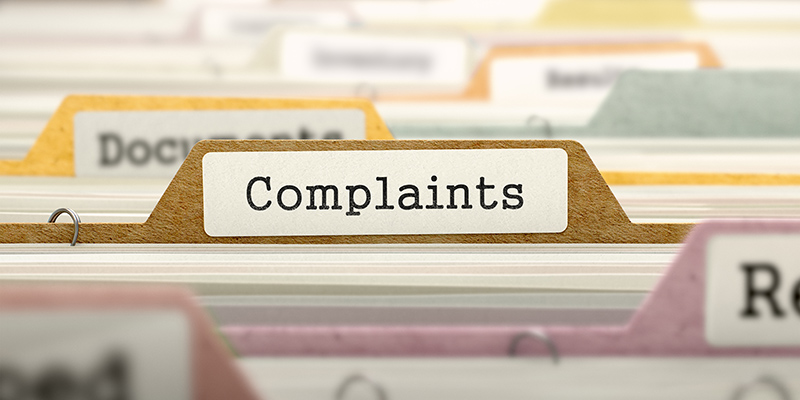Should The HOA Disclose The Name Of A Complainant?

Should an HOA disclose the name of a complainant when carrying out the violation process? This is a question many HOA members ask. Homeowners accused of a violation often wish to confront their accusers, but they may not always get the chance. Similarly, HOA board members may find it difficult to respond to an owner who demands to know the name of the complainant.
Browse By Category
Sign up for Our Newsletter
Should an HOA disclose the name of a complainant when carrying out the violation process? This is a question many HOA members ask. Homeowners accused of a violation often wish to confront their accusers, but they may not always get the chance. Similarly, HOA board members may find it difficult to respond to an owner who demands to know the name of the complainant.
Understanding How HOA Violations Work
Homeowners associations typically have rules and regulations that residents must follow. When a homeowner violates a rule, they can face several possible penalties, including but not limited to fines, the suspension of privileges, and even legal action. Most of the time, the board, manager, or violations committee observes these violations through routine inspections. However, now and then, a fellow resident may submit a complaint to the HOA against a neighbor.
When this happens, the first instinct many owners have is to confront their accusers by asking the board for the complainant’s name. The HOA board may be at a loss, not knowing how to respond to such a request or demand.
Can an HOA Disclose the Name of a Complainant?
The answer depends on state laws and the association’s governing documents. In general, though, if the complainant consents, then the HOA board may disclose their name. Most of the time, it boils down to whether or not the complainant agrees to have their name revealed.
The HOA board should not disclose their name if the complainant asks to remain anonymous. However, the board must clarify to the complainant that their name may still be disclosed under a court order or if the case turns into a lawsuit. Additionally, if the board can’t verify the violation and the complainant declines to attend the hearing as a witness, the complaint may not result in any penalty or disciplinary action.
For a smooth violation process and to limit liability, the HOA board or manager should always ask the complainant for their permission to put their name on the record.
Should an HOA Disclose the Name of a Complainant?
 It has been established that an HOA’s ability to disclose the complainant’s name generally hinges on state laws, the governing documents, and the complainant’s consent. If all those boxes are ticked, the HOA now has a new concern: Should the name of the complainant in an HOA be disclosed?
It has been established that an HOA’s ability to disclose the complainant’s name generally hinges on state laws, the governing documents, and the complainant’s consent. If all those boxes are ticked, the HOA now has a new concern: Should the name of the complainant in an HOA be disclosed?
More often than not, an HOA is not obligated to disclose a complainant’s name. In many states, though, associations are required to allow homeowners to be heard. Another term for this is a disciplinary hearing. For example, in California, Civil Code Section 5855 provides strict requirements for disciplinary hearings.
At these hearings, both sides will present their case. Typically, the HOA board must verify the accusation and confirm whether it holds water. If the board can’t verify the violation and the complainant refuses to appear as a witness, then the board may not have sufficient evidence. This means the board may not be able to take action. The complainant must understand that remaining anonymous could mean their complaint will go unresolved.
Remember, though, that a disciplinary hearing is not a legal one. It is not a court of law. Therefore, the accused does not have a right to know their accuser. If the case goes to court, though, or there is a court order to disclose the name, the board must obviously comply.
The Importance of Verifying Violation Claims
All HOA communities should have a violation system in place. This system should include a procedure for accepting complaints from homeowners.
It is a good idea to maintain a written record of all complaints. The HOA board should also clarify that it can’t act on a complaint unless the complainant signs it. Moreover, unless it’s an emergency, the board or violations committee must verify the complaints before taking action.
For example, if someone submits a complaint about a loud party, the board or committee should personally inspect the party. This will limit the need for the complainant to reveal their identity and appear as a witness because the board or committee itself saw the party.
Frequently Asked Questions
Are HOA violation complainants confidential?
It depends on state laws and the governing documents. Generally, if the complainant agrees to have their name divulged, then the board may do so. However, the board shouldn’t disclose their name if the complainant asks to remain anonymous. Circling back to the point above, the board should clarify to the complainant that their issue may not have a resolution if the board can’t verify the claim and refuses to appear as a witness.
Should the HOA reveal the name of the complainant?
As stated above, the HOA is not obligated to disclose the complainant’s name. However, the HOA board should take a case-by-case approach. This is where a strict violation process comes in handy. If the violation process requires complaints to be signed, the complainant’s identity may be revealed, especially at the hearing.
Does the accused owner have a right to the name of the complainant?
Generally, no. However, the accused will likely figure out who the complainant is, especially if the complaint is specific. For example, a noise complaint means that it probably came from a neighbor who lives relatively close by. Of course, that doesn’t mean the board should throw caution to the wind and divulge the information freely, though.
Can an HOA Disclose the Name of a Complainant? Answered!
 Whether or not an HOA can or should disclose the name of a complainant is a tricky situation. When it comes down to it, an HOA should have a comprehensive violation process to avoid running into problems like this. Furthermore, enlisting the help of an HOA management company can assist boards in navigating the ins and outs of violations.
Whether or not an HOA can or should disclose the name of a complainant is a tricky situation. When it comes down to it, an HOA should have a comprehensive violation process to avoid running into problems like this. Furthermore, enlisting the help of an HOA management company can assist boards in navigating the ins and outs of violations.
Start looking for a reputable HOA management company in your area today using our online directory!
RELATED ARTICLES:
- House Bill 614: Texas Law Limits Fines For HOA Violations
- Should Homeowners Be Appointed As HOA Violation Enforcers?
- HOA Violation Notice: What To Do And Homeowners Rights
Trending Now
Related Article
Sign up for Our Monthly Newsletter
Sign up below for monthly updates on all HOA Resource

















